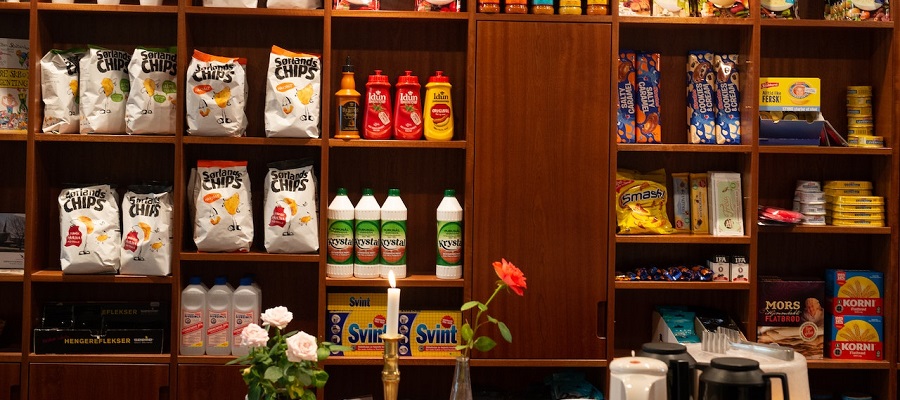Grocery wholesalers operate in a competitive market and must constantly strive to attract and retain customers. In this article, we'll explore the various ways that grocery wholesalers handle competition with other wholesale and retail stores, including strategies for pricing, product selection, customer service, and marketing.
Pricing Strategies
Pricing is a critical factor in the success of a grocery wholesale store. In order to attract and retain customers, grocery wholesalers must implement pricing strategies that are competitive with other stores in their market. In this article, we'll explore some of the key pricing strategies that grocery wholesalers can use.
"Competitive Pricing"
One of the most common pricing strategies for grocery wholesalers is competitive pricing. This involves setting prices that are lower than or on par with other stores in the market. By offering competitive prices, grocery wholesalers can attract price-sensitive customers and prevent them from shopping elsewhere.
However, it's important to note that competitive pricing alone may not be sufficient to attract and retain customers. In order to be successful, grocery wholesalers must also offer other value-added elements, such as a wide selection of products, excellent customer service, and convenient payment options.
"Price-Matching Policies"
Another pricing strategy that grocery wholesalers may use is price-matching policies. Price-matching policies typically require the store to match the price of a competing store if the customer can provide evidence of a lower price. This can help to attract price-sensitive customers and prevent them from shopping elsewhere.
Price-matching policies can be effective in attracting customers, but they can also be challenging to implement. Grocery wholesalers must have a clear understanding of the prices of their competitors and be prepared to match those prices when necessary. In addition, price-matching policies may require additional staff or systems to manage and enforce.
"Promotions and Discounts"
Another pricing strategy that grocery wholesalers may use is offering promotions and discounts to attract customers. Promotions and discounts can take many forms, such as buy-one-get-one-free offers, percentage discounts, or dollar-off discounts.
Promotions and discounts can be effective in attracting customers, but they can also impact the overall profitability of the store. Grocery wholesalers must carefully consider the cost of the promotion or discount and the expected return on investment.
Product Selection
Product selection is an important factor in the success of a grocery wholesale store. In order to attract and retain customers, grocery wholesalers must offer a wide selection of products that meet the needs and preferences of their customers. In this article, we'll explore some of the key considerations for product selection at grocery wholesalers.
"Variety of Products"
One key consideration for product selection at grocery wholesalers is offering a wide variety of products. This may involve carrying a range of products from different brands and categories, such as fresh produce, meats, dairy, and baked goods. By offering a wide variety of products, grocery wholesalers can attract customers who are looking for a specific product or who prefer to shop for all of their groceries at one store.
"Exclusive Products"
Another way that grocery wholesalers can differentiate themselves from their competitors is by offering exclusive products that are only available at their store. These products may be private label products, or they may be products that are difficult to find elsewhere. By offering exclusive products, grocery wholesalers can create a sense of scarcity and encourage customers to shop at their store.
"Trends and Demands"
It's also important for grocery wholesalers to stay up-to-date on trends and demands in the market. This may involve conducting market research to identify emerging trends and popular products, as well as staying in touch with customers to learn about their needs and preferences. By staying attuned to trends and demands, grocery wholesalers can ensure that they are offering products that are in high demand and that meet the needs of their customers.
"Sourcing"
Grocery wholesalers may also focus on sourcing products that are in high demand or that are difficult to find elsewhere. This can help to differentiate the store from its competitors and attract customers who are looking for specific products. Sourcing products may involve developing relationships with local farmers and food producers, or working with international suppliers to bring in products from other parts of the world.
Customer Service
Grocery wholesalers may also differentiate themselves from their competitors by offering exceptional customer service. This may involve providing helpful and knowledgeable staff, offering convenient payment options, and providing a clean and well-organized store.
Grocery wholesalers may also offer additional services, such as delivery or pickup options, to make shopping more convenient for customers. By offering excellent customer service, grocery wholesalers can create a positive shopping experience that sets them apart from their competitors.
Marketing Strategies
Grocery wholesalers may also use marketing strategies to attract and retain customers. This may involve using traditional marketing channels, such as advertising in newspapers or on television, or using digital marketing channels, such as social media or email marketing.
Grocery wholesalers may also use loyalty programs or rewards to encourage repeat business. These programs can offer customers discounts, points, or other incentives for shopping at the store. By using marketing strategies, grocery wholesalers can create awareness and interest in their products and services and attract new customers.
Conclusion
In conclusion, grocery wholesalers handle competition with other wholesale and retail stores by implementing pricing strategies, offering a wide selection of products, providing exceptional customer service, and using marketing strategies. By adopting these strategies, grocery wholesalers can attract and retain customers and remain competitive in their market.


